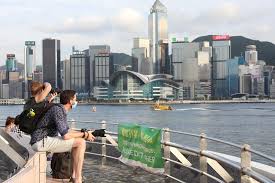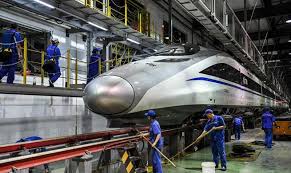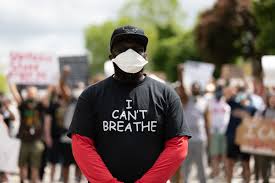
Opinion: China’s human rights progress deserves applause instead of smearing
By Chen Chen- Xinhua
Beijing: China always holds that the protection of human rights will only ring hollow unless human lives are valued, and social stability and security guaranteed.
That principle has seen growing global consensus in today’s crisis-stricken world.
At the just concluded 44th session of the United Nations Human Rights Council (UNHRC), China has won broad endorsement of its tangible progress on the human rights cause despite some Western countries’ persistence to smear Beijing’s efforts to promote general stability and security in Xinjiang and Hong Kong.

Over the past 18 days of the gathering of the world’s only inter-governmental human rights body, more than 70 countries have backed China’s national security legislation for the Hong Kong Special Administrative Region, and 46 countries have voiced their support for China’s anti-terrorism and de-radicalization drive in the Xinjiang Uygur Autonomous Region, while strongly rejecting foreign interference in China’s internal affairs.
Cold-blooded terrorism and violent extremism, with little doubt, pose a severe threat to human lives, and thus to the most basic human rights. That is why Beijing has taken relentless law-based efforts to root out terrorism in Xinjiang and end violence in Hong Kong.
For Hong Kong, the city is on course to having order restored following last year’s escalating chaos. What’s more, Xinjiang has seen no single terrorist attack over the last three years because of a rigorous counterterrorism drive.
China’s arduous yet effective battle against the COVID-19 outbreak and its historic poverty alleviation campaign are also a part of the reason why it can win wide support within and beyond the conference hall of the UNHRC session.
Instead of recognizing the rock-solid fact that China has achieved indisputable human rights progress, some China-bashers in Washington are trying to narrate a different story with one cheeky lie after another. As the presidential elections are drawing close, their real purpose of scoring political points for themselves is too obvious to miss.

U.S. Secretary of State Mike Pompeo, who has been one of the most hysterical anti-China voices in the current U.S. administration, slapped Chinese technology firms with visa restrictions on Wednesday, citing human rights abuses, and National Security Advisor Robert O’Brien said weeks ago that the Communist Party of China has used China’s UNHRC membership to dodge criticism in Xinjiang and Hong Kong. Moreover, in an excessively desperate act to defame China, a U.S. state department spokeswoman recently tweeted a photoshopped picture to smear the human rights situation in Xinjiang.
While those China hawks in Washington are busy seeking to brainwash the wider international community, they seem hardly bothered by their own country’s degenerative human rights track records, both at home and overseas.
Domestically, the United States is struggling with a “double crisis.” The confluence of Washington’s terrible response to the COVID-19 outbreak and the country’s deep-seated institutional discrimination has not only further exposed its racial disparity, but also made the coronavirus deadlier to non-whites in the United States. The U.S. National Academies of Sciences, Engineering, and Medicine recently quoted cardiologist Clyde Yancy of Northwestern University as saying that black patients are estimated to be 2.4 times more likely to die of the virus than whites.

Moreover, with Washington’s bloody overseas military adventures in Afghanistan, Iraq, Syria and elsewhere, the United States is irrefutably the world’s abuser-in-chief of human rights.
Smearing China may help those Washington China hardliners with a few more votes in the coming elections, yet America’s deeply entrenched human rights problems are not being solved, and may grow even worse.
If Washington truly wants to make some positive contributions to the world’s human rights cause, it should stop denying China’s substantial improvement in human rights, start to fix its own problems and join others around the world in promoting peace and stability.
